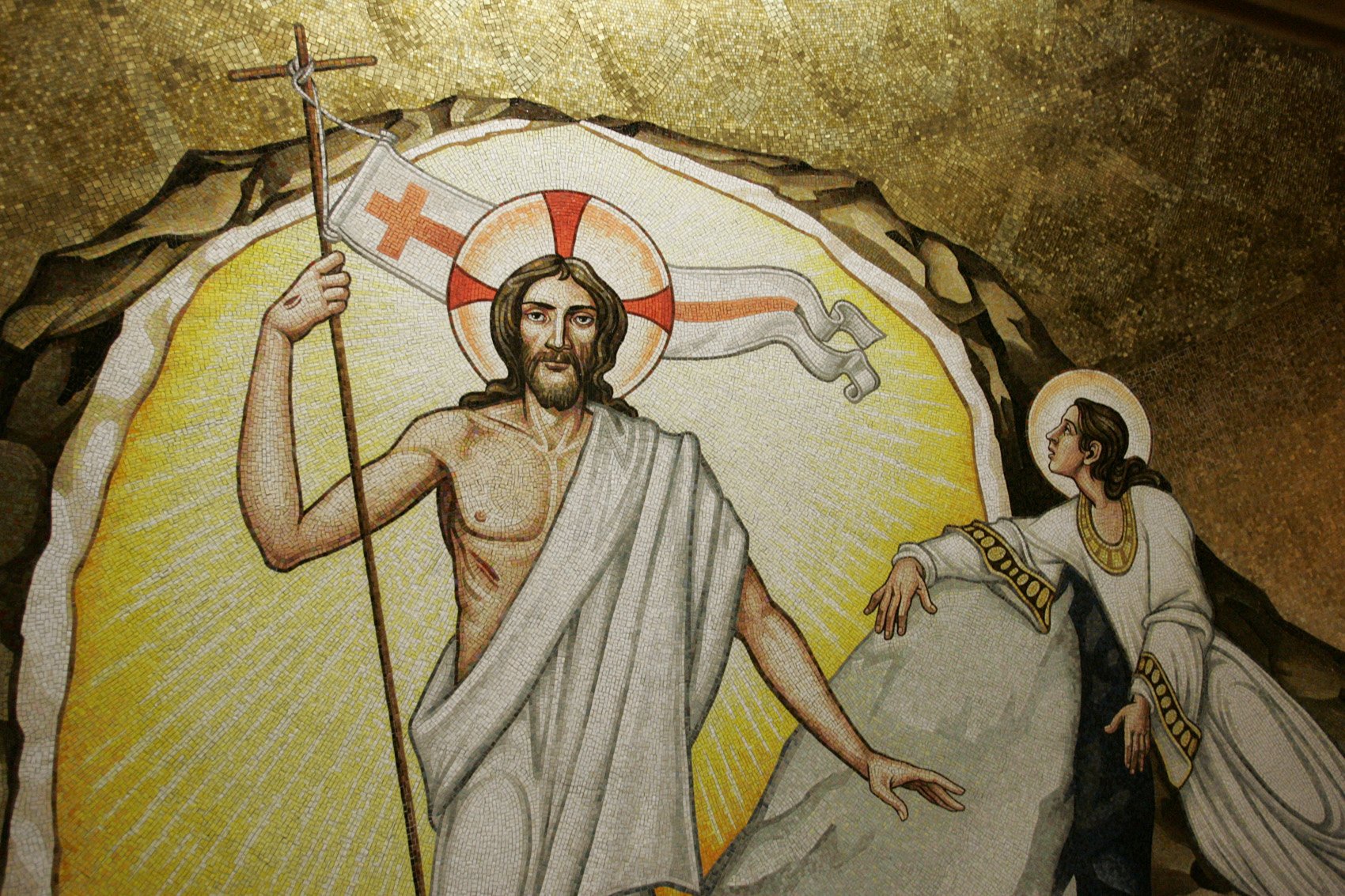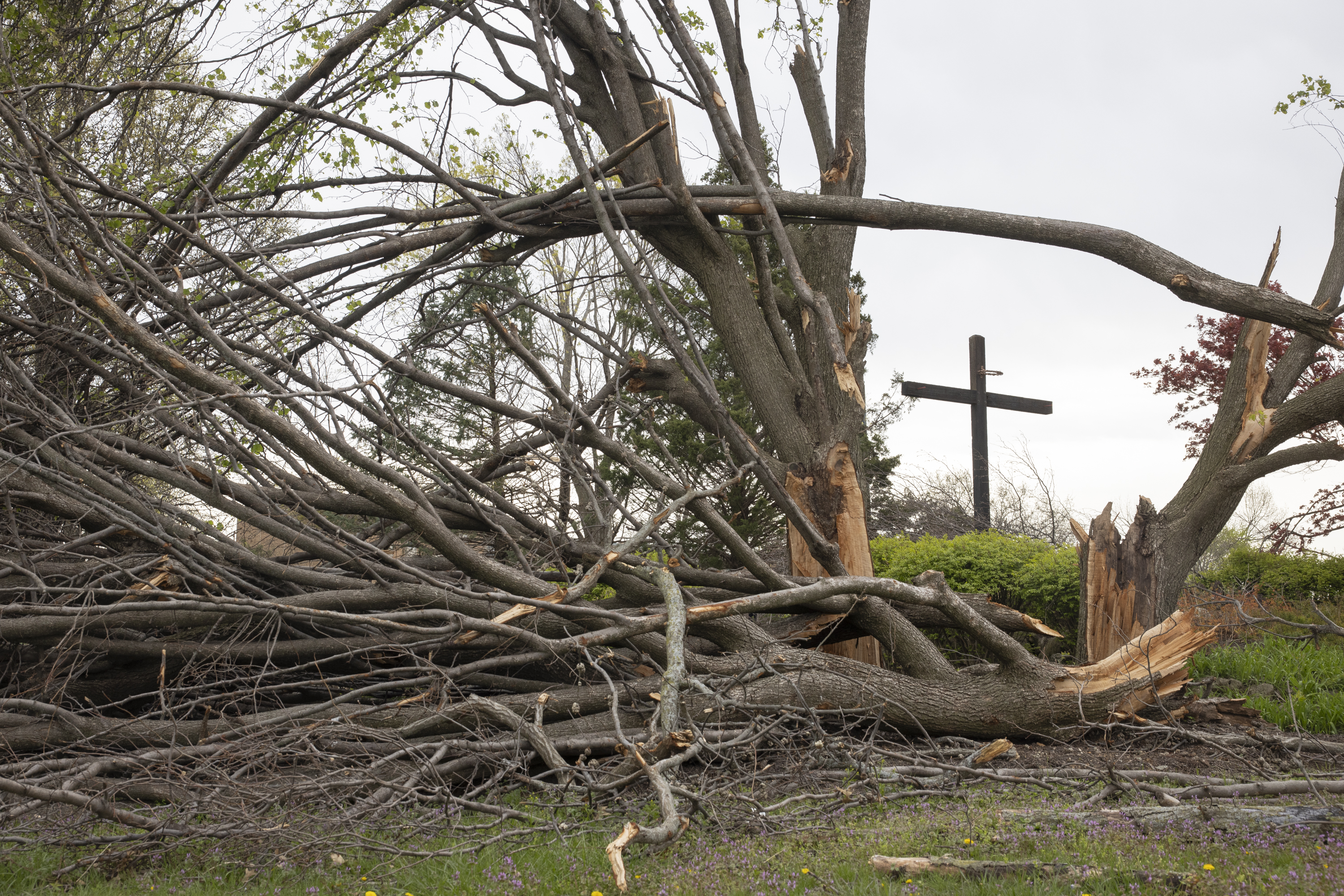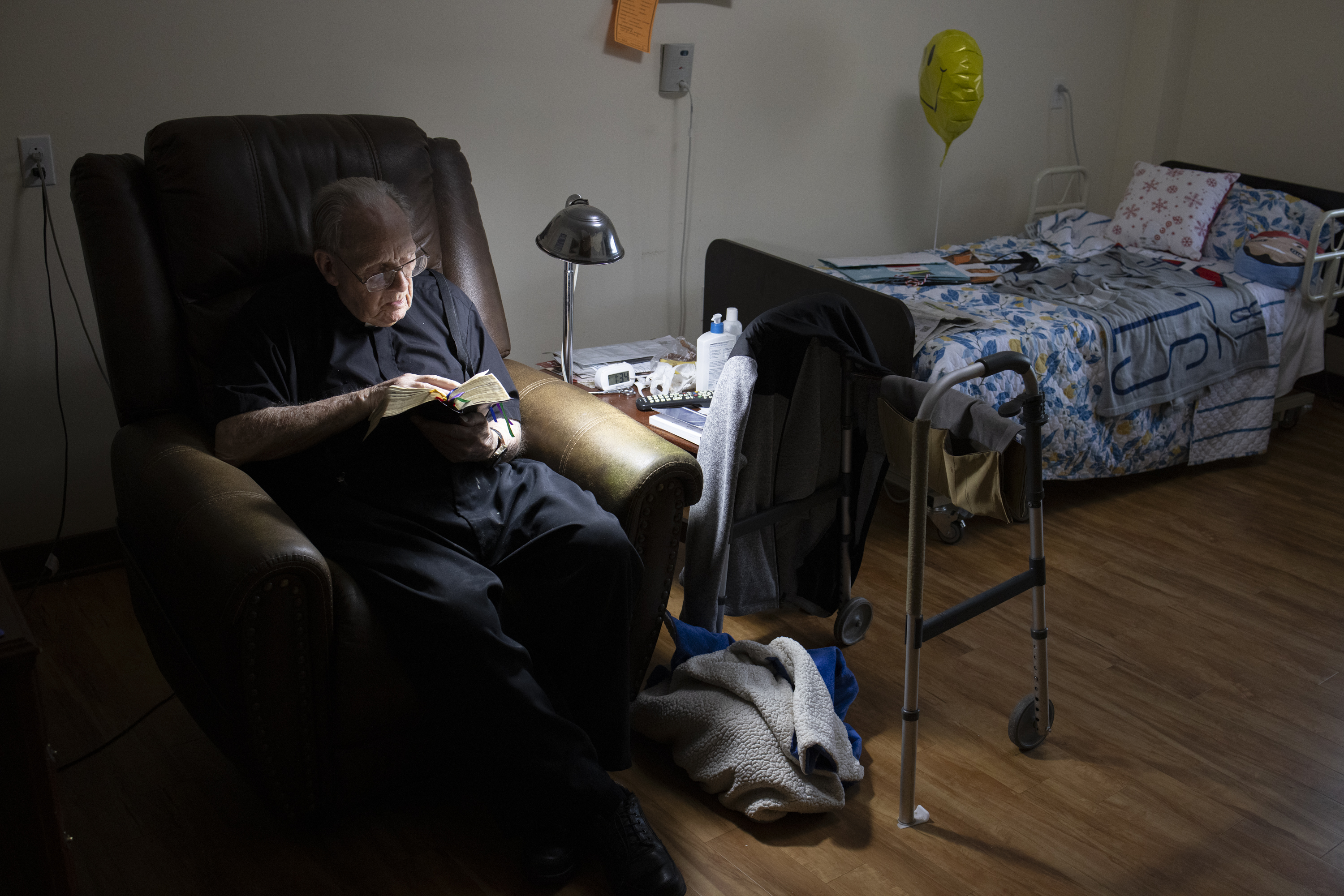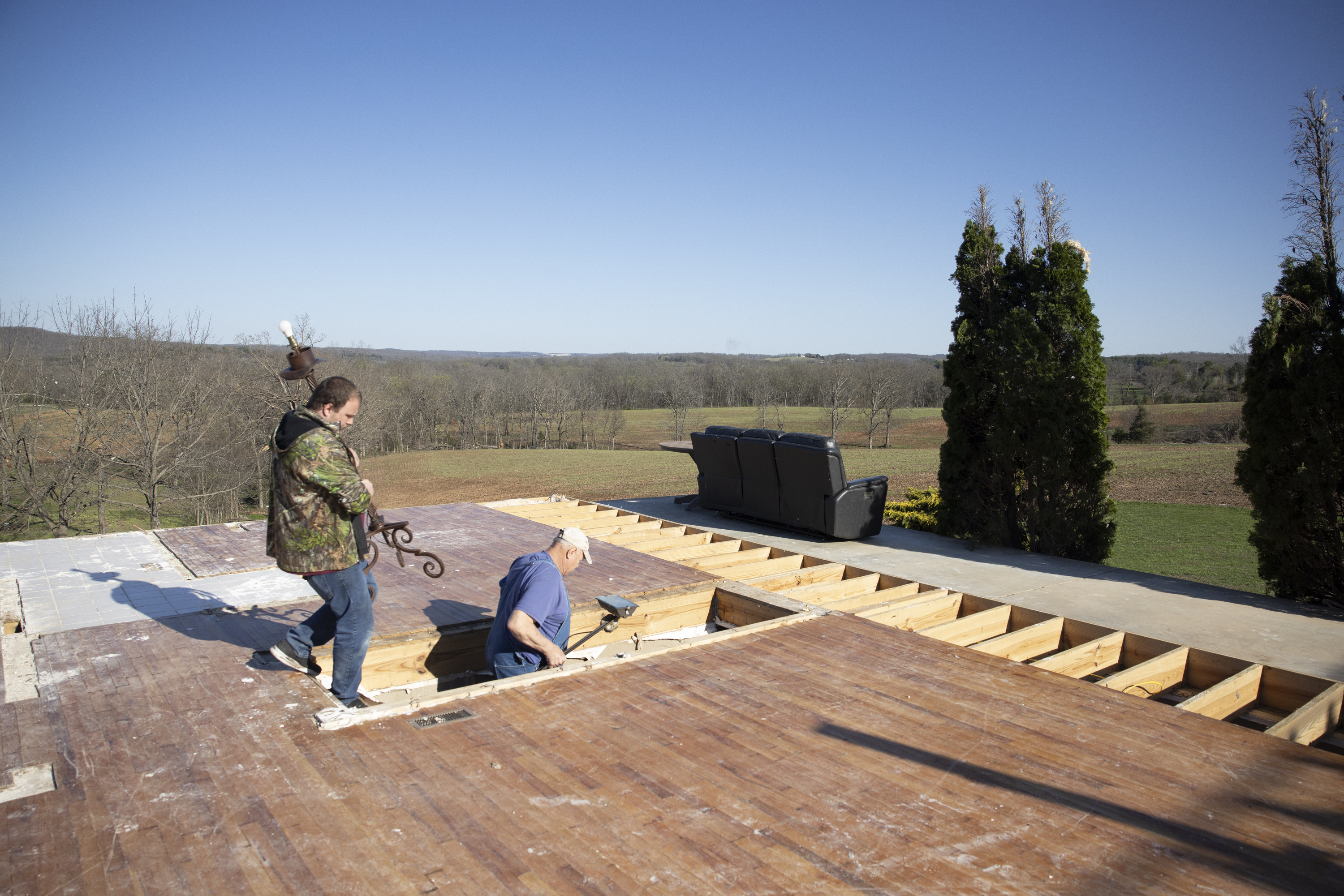During Jubilee Year, Catholics continue efforts to end the death penalty
While Missouri faces ‘uphill battle,’ there are signs of hope around the nation
During the Jubilee Year of Hope, Pope Francis named abolition of the death penalty as a priority around the world.
So when then-President Joseph Biden on Dec. 23 commuted the sentences of 37 of the 40 men on federal death row to life in prison, it felt like the jubilee had arrived early, Catholic Mobilizing Network executive director Krisanne Vaillancourt Murphy said.
“The Holy Father, at every turn, keeps talking about how we are not stepping back from this position,” she said. “The death penalty is an affront to human dignity. It’s contrary to human life, and he’s really helped to prioritize that. Because it is something that we can end in this country.”

Vaillancourt Murphy was among staff from national nonprofit Catholic Mobilizing Network who traveled to Missouri for several events on the death penalty in April, including a breakfast and panel discussion hosted by the Incarnate Word Foundation and presentations at Saint Louis University and Rockhurst University in Kansas City.
So far in 2025, 12 executions have taken place across the U.S. in South Carolina (3), Florida (3), Texas (2), Alabama (1), Arizona (1), Louisiana (1) and Oklahoma (1). Two more were scheduled for April 23 and 24 in Texas and Alabama, respectively, with several more on the books through the rest of the calendar year.
This year, Louisiana and Alabama have executed men using nitrogen gas, a new method first used in 2024 in Alabama. South Carolina carried out two by firing squad, which had not been used in the U.S. since 2010.
These developments can be discouraging, Vaillancourt Murphy acknowledged while speaking at the April 11 breakfast.
“But the good news is, if you were to look at the last couple of decades, the trend is moving in our favor,” she said.
The number of new death sentences and executions has been declining over the past 20 years, she said. In the “modern era” of the death penalty (since 1976), executions peaked at 98 nationwide in 1999 and have been trending down ever since.
Missouri has a new Catholic governor, Gov. Mike Kehoe, Vaillancourt Murphy also noted.
“He’s someone who seems to be very serious about his faith, and we have a strong moral teaching on the matter…I’m hopeful that he walks this path very carefully and is open to the moral teaching of the Church,” she said.

Larry Komp, the capital habeas unit chief for the Federal Public Defender for the Federal Western District of Missouri, spoke at the breakfast about his experience representing individuals sentenced to death. The Church’s focus on the dignity of the person is crucial to the work, he said.
“The hardest part of my work is twofold: It’s trying to get the public to discount the monster they turn my client into, and then (with) my client, trying to get them to believe they’re not the monster that they’re told they are, and giving them that space to have that redemption,” Komp, a parishioner at Holy Infant in Ballwin, said. “We have to reinforce humanity, that these are human beings.”
At Saint Louis University on April 10, death row exonoree Herman Lindsey shared his story of three years on Florida’s death row. The Florida Supreme Court vacated his conviction in 2009, and he now serves as executive director of Witness to Innocence, an organization of death row exonorees, and on the board of Floridians for Alternatives to the Death Penalty.
Lindsey is among 200 people who have been exonerated from death row since 1973. His voice choked up as he looked at the standing-room-only crowd of college students gathered to listen to the afternoon panel.
“Those people on death row — when we were in there, we feel like nobody can help us, nobody can care, and nobody’s doing (anything) about it,” he said. “And then when they find out people such as yourself are out there advocating and trying to spare their life, it means a whole lot to them. A whole lot.”
The death penalty in Missouri
Legislation to abolish or limit the death penalty is a continuous uphill battle in the Missouri legislature, Missouri Catholic Conference executive director Jamie Morris said. While a handful of bills to abolish the practice were introduced this session, none have been assigned to a committee yet — not very encouraging with less than two months left in the legislative session, Morris said.
“We’ve still got a lot of work to do, changing hearts and minds on this particular issue,” he said.
Missouri was one of nine states to carry out the death penalty in 2024, executing Brian Dorsey in April, David Hosier in June, Marcellus Williams in September and Christopher Collings in December.
On March 31, the Missouri Attorney General’s Office filed a motion with the Missouri Supreme Court requesting an execution date for Lance Shockley. Shockley was convicted of the 2005 fatal shooting of Missouri State Highway Patrol Sgt. Dewayne Graham in Carter County.
The jury deadlocked during the sentencing phase of Shockley’s trial, which left the decision in the hands of Circuit Judge David Evans, who sentenced him to death.
This so-called “judicial loophole” — allowing a judge to impose a death sentence when the jury can’t come to a unanimous decision — is only legal in Missouri and Indiana. Bills in the Missouri legislature are trying to change that: Senate Bill 225, which was heard on the Senate floor; and House Bill 953, a broader criminal justice bill that includes closing the judicial loophole among other items, was passed out of the House.
In February, Mary Beth Olms traveled with fellow St. Cletus Parish peace and justice committee members to participate in Missourians to Abolish the Death Penalty’s lobby day at the Capitol. Besides outright abolition of the death penalty, they advocated strongly for eliminating the judicial loophole, she said.
“I think by making (the legislators) think about that one little thing, that maybe they might start thinking about, maybe I need to read some more about this. And so planting the little seeds gave me some hope,” she said.
Going to Jefferson City to lobby was intimidating at first, Olms said, but her faith compelled her to action.
“Don’t be afraid to use your voice,” she said. “…Phone calls, signing petitions, letters, anything — just do something.”
What can I do?
Get involved through prayer, education and advocacy with Catholic Mobilizing Network: catholicsmobilizing.org
Stay informed on current death penalty legislation and other issues in Missouri through the Missouri Catholic Conference’s Positions and Progress Report: mocatholic.org
Contact your state senator and representative and ask them to support legislation abolishing or limiting the death penalty in Missouri. To find your local members of Congress and contact information, visit house.mo.gov/ legislatorlookup.aspx
The archdiocesan Office of Peace and Justice participates in a peaceful prayer vigil outside the Eastern Reception, Diagnostic and Correctional Center in Bonne Terre during every execution. For more information, contact Marie Kenyon at (314) 792-7062 or mariekenyon@archstl.org.
While Missouri faces ‘uphill battle,’ there are signs of hope around the nation
Subscribe to Read All St. Louis Review Stories
All readers receive 5 stories to read free per month. After that, readers will need to be logged in.
If you are currently receive the St. Louis Review at your home or office, please send your name and address (and subscriber id if you know it) to subscriptions@stlouisreview.com to get your login information.
If you are not currently a subscriber to the St. Louis Review, please contact subscriptions@stlouisreview.com for information on how to subscribe.







